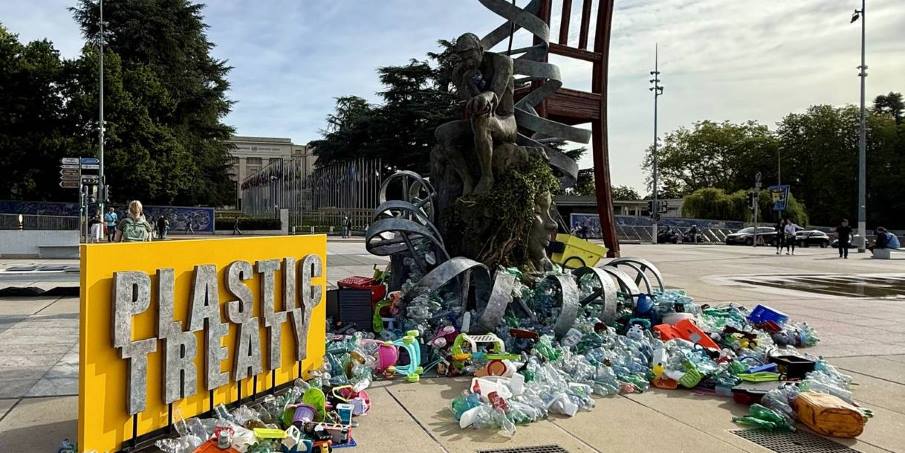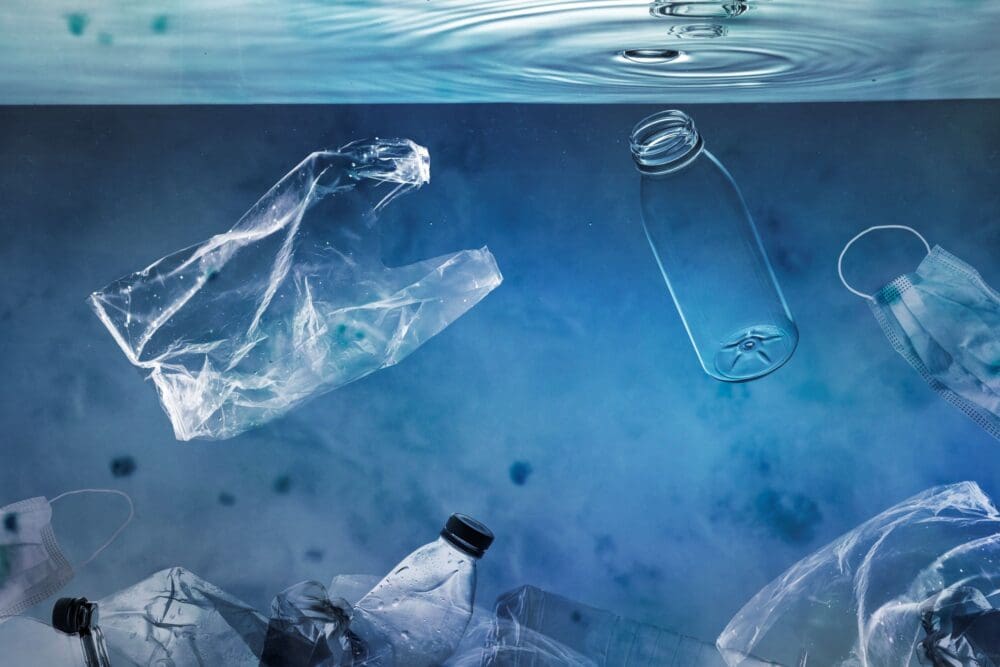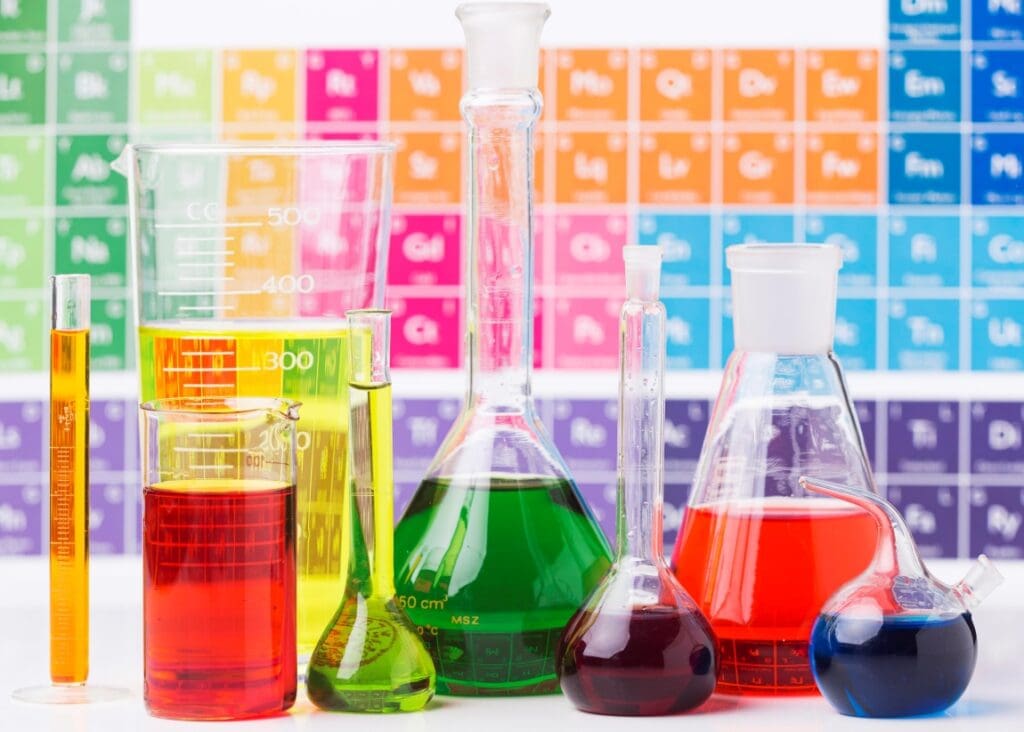Geneva, Switzerland | AFP
Nations must step up and resolve the global plastics crisis, the head of UN talks told negotiators from 180 countries gathered in Geneva on Tuesday to forge a landmark treaty on eliminating the life-threatening waste.
“We are facing a global crisis,” Ecuadoran diplomat Luis Vayas Valdivieso said at the start of 10 days of negotiations.
“Plastic pollution is damaging ecosystems, polluting our oceans and rivers, threatening biodiversity, harming human health, and unfairly impacting the most vulnerable,” he said.
“The urgency is real, the evidence is clear, and the responsibility is on us.”
Three years of negotiations hit the wall in Busan, South Korea in December when oil-producing states blocked a consensus.
Key figures steering the negotiations at this new attempt said they were not expecting an easy ride this time, but insisted a deal remained within reach.
“There’s been extensive diplomacy from Busan till now,” UN Environment Programme executive director Inger Andersen told AFP.
UNEP is hosting the talks, and Andersen said conversations between different regions and interest groups had generated momentum.
“Most countries, actually, that I have spoken with have said: ‘We’re coming to Geneva to strike the deal’.”
“Will it be easy? No. Will it be straightforward? No. Is there a pathway for a deal? Absolutely.”

Human bodies riddled
Plastic pollution is so ubiquitous that microplastics have been found on the highest mountain peaks, in the deepest ocean trench and scattered throughout almost every part of the human body.
In 2022, countries agreed they would find a way to address the crisis by the end of 2024.
However, the supposedly final negotiations on a legally-binding instrument on plastic pollution, including in the seas, flopped in Busan.
One group of countries sought an ambitious deal to limit production and phase out harmful chemicals.
But a clutch of mostly oil-producing nations rejected production limits and wanted to focus on treating waste.
Valdivieso insisted that an effective, fair and ambitious agreement was within reach.
“Our paths and positions might differ; our destination is the same,” he said Monday.
“We are all here because we believe in a shared cause: a world free of plastic pollution.”
‘Plastic-free future’
More than 600 non-governmental organisations are in Geneva. NGOs and civil society have access to the discussions tackling the thorniest points, such as banning certain chemicals and capping production.
“To solve the plastic pollution crisis, we have to stop making so much plastic,” Greenpeace delegation chief Graham Forbes told AFP.
The group and its allies want a treaty “that cuts plastic production, eliminates toxic chemicals, and provides the financing that’s going to be required to transition to a fossil fuel, plastic-free future,” he said.
“The fossil fuel industry is here in force,” he noted, adding: “We cannot let a few countries determine humanity’s future when it comes to plastic pollution.”
Dumped, burned and trashed
More than 400 million tonnes of plastic are produced globally each year, half of which is for single-use items.
While 15 percent of plastic waste is collected for recycling, only nine percent is actually recycled.
Nearly half, 46 percent, ends up in landfills, while 17 percent is incinerated and 22 percent is mismanaged and becomes litter.
A report in The Lancet medical journal warned Monday that plastic pollution was a “grave, growing and under-recognised danger” to health, costing the world at least $1.5 trillion a year in health-related economic losses.
The new review of existing evidence, conducted by leading health researchers and doctors, compared plastic to air pollution and lead, saying its impact on health could be mitigated by laws and policies.
To hammer home the message, a replica outside the UN of Auguste Rodin’s famous sculpture “The Thinker” will be slowly submerged in mounting plastic rubbish during the talks.
The artwork, entitled “The Thinker’s Burden”, is being constructed by the Canadian artist and activist Benjamin Von Wong.
“If you want to protect health, then we need to think about the toxic chemicals that are entering our environment,” he told AFP.
But Matthew Kastner, spokesman for the American Chemistry Council, said the plastics industry and its products were “vital to public health”, notably through medical devices, surgical masks, child safety seats, helmets and pipes delivering clean water.
rjm-im-bur/tw
© Agence France-Presse
Article Source:
Press Release/Material by AFP
Featured image credit: rawpixel.com | Freepik




